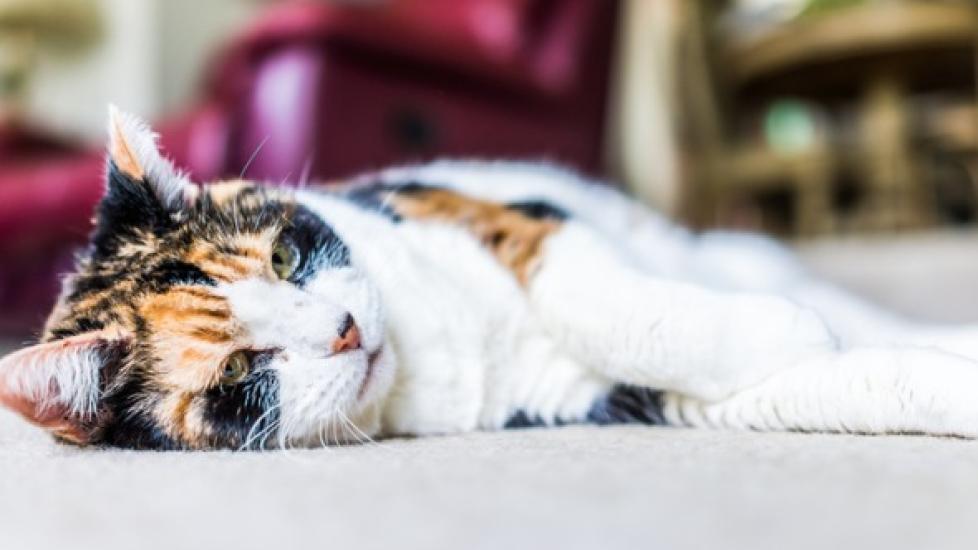6 Tips for Caring for Senior Cats
Reviewed for accuracy on November 18, 2019, by Dr. Liz Bales, VMD
With good care—and good luck—our cats can live well into their late teens, and even their twenties. But as cats age, their physical and behavioral needs change.
While these changes are obvious as your kitten matures into an adult cat, the changes when your cat transitions from an adult to a senior—starting at 11 years old—can be harder to spot.
Here are the top six ways to care for aging cats.
1. Pay Extra Attention to Your Senior Cat’s Diet
Senior cats have unique dietary and behavioral needs. It is more important than ever for your cat to be a healthy weight to maintain optimum health.
Talk to your veterinarian about how and when to transition your cat to a senior food.
Your veterinarian will help you asses your cat’s optimum weight and can recommend a senior food to help maintain, lose or gain weight.
A cat’s digestion is also improved by feeding them small, frequent meals throughout the day and night. Measure your cat’s daily food and distribute it in small portions.
You can use tools like hunting feeders, like Doc & Phoebe’s Cat Co. Indoor Cat Feeder Kit, and puzzle toys that promote physical and mental engagement at mealtime.
2. Increase Your Cat’s Access to Water
As cats age, they are prone to constipation and kidney disease, especially if they are not staying hydrated enough.
Increase your senior cat’s water intake by providing canned food and more options for drinking water.
As your cat gets older, they might not be able to jump up on to counters or access the usual water dish. Add more water stations around the house with plenty of bowls and/or pet water fountains to entice your senior cat to drink more.
3. Know and Keep an Eye Out for the Subtle Signs of Pain in Cats
Cats are masters at hiding their pain. As many as nine out of 10 senior cats show evidence of arthritis when X-rayed, yet most of us with senior cats have no idea.
The most important thing you can do to prevent the pain from arthritis is to keep your cat at healthy weight. As little as a pound or two of excess weight can significantly increase the pain of sore joints.
Your veterinarian can help you with a long-term plan to help control your cat’s pain with medicine, supplements and alternative treatments, like acupuncture, physical therapy and laser treatments.
4. Don’t Neglect Your Cat’s Dental Health
Dental disease is very common in aging cats. Cats can get painful holes in their teeth, broken teeth, gum disease and oral tumors that significantly affect their quality of life.
Infections in the mouth enter the bloodstream and can slowly affect the liver, kidneys and heart. So paying attention to your cat’s dental health is essential to caring for them during their senior years.
Often, there is no clear sign of dental disease. Cat parents see weight loss and a poor hair coat as the vague signs of aging, not an indication of a potential problem.
A thorough veterinary exam and routine dental care can drastically improve your cat’s quality of life, and can even extend their lifespan.
5. Give Senior Cats Daily Exercise and Mental Stimulation
Environmental enrichment is an essential part of your cat’s quality of life.
All cats need places to climb, places to hide, things to scratch, and ways to hunt and play. All of these things will help your cat stay physically and mentally stimulated as well as healthy.
However, as your cat ages, providing these things may require some extra thought. Your cat’s mobility may become more limited, so you will need to make your home more accessible so that it’s easier on their older joints.
For example, a carpeted cat ramp can act as a scratching post as well as a climbing aid for cats with arthritis. A covered cat bed can give aging cats a cozy, warm place to hide that also helps to soothe sore joints and muscles. You can move their food and water bowls to more accessible locations on the ground instead of on tables or counters.
6. Don’t Skimp on Biannual Vet Visits
Finally, and most importantly, maintaining a good relationship with your veterinarian is critical when discussing care and quality of life for your cat in their senior years. Ideally, cats over 11 years of age should see the veterinarian every six months.
Blood work done during these visits can detect the onset of health issues—like kidney disease—while there’s still time to make medical changes that will improve and extend your cat’s life.
Weighing your cat twice a year will also show trends in weight loss or gain that can be valuable clues to overall health changes. And oral exams will detect dental disease before it negatively impacts your cat’s health.
iStock.com/krblokhin
